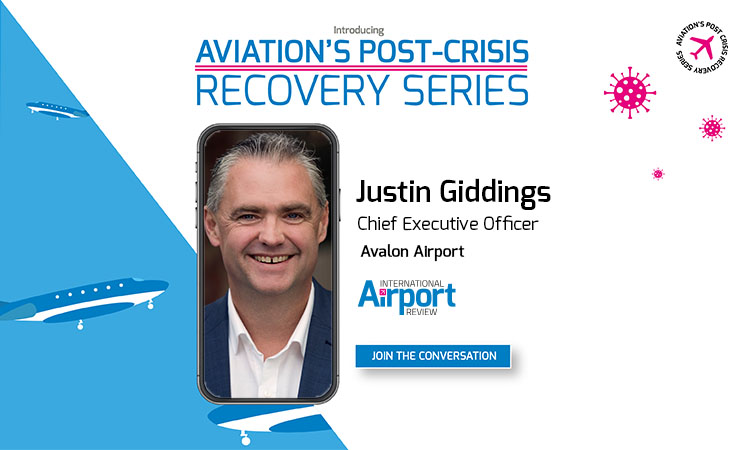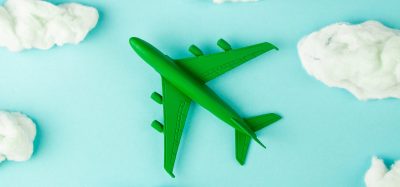Aviation’s Post-Crisis Recovery Series: Avalon Airport
Posted: 12 February 2021 | Justin Giddings | No comments yet
In the second instalment of International Airport Review’s exclusive series, Justin Giddings, CEO of Avalon Airport, shares how flexibility and adaptation have been key during the pandemic, and the positive work that has been going on in that time to improve the passenger experience and restore passenger confidence as air traffic slowly begins to return.


The COVID-19 pandemic has been completely unprecedented in its impact on the aviation industry. How has it impacted Avalon Airport?
Like all airports in Australia, the COVID-19 epidemic has had a substantial impact on Avalon Airport (AVV). Once the virus outbreak occurred, numerous borders began to close. At the outbreak, Australia banned all passengers entering from China. Although Avalon does not receive direct flights from China, the closure had a significant impact on our domestic operations. The Chinese market provides a significant proportion of passenger volumes between Sydney and Avalon.
I’m pleased that domestic services have begun to ramp up, and we hope to be at 100 per cent domestic capacity by April 2021″
From there, things continued to deteriorate. The Indian Government suspended all flights entering from Malaysia. Avalon has a large Indian customer base, and the inability to fly to India via Malaysia saw passenger numbers plummet. It was soon after that that all international passenger operations ceased.
Our new Citilink service to Bali was the first to be suspended, and soon after we saw reduced capacity on our AirAsia flights to Kuala Lumpur. AirAsia suspended flights in March 2020 and, a few weeks later, all domestic operations ceased. The most difficult part to manage was the uncertainty of when passenger flights would resume. We had a number of false starts, but I’m pleased that domestic services have begun to ramp up, and we hope to be at 100 per cent domestic capacity by April 2021.
Join us live: Shaping the Next Generation of Hold Baggage and Air Cargo Screening
Join us live for an insightful webinar on 11th December at 14:00 GMT, in collaboration with Smiths Detection, as we explore the strategic balance of operational efficiency, regulatory compliance, and sustainability in high-volume security environments.
This session offers a focused look into future-proofing your security strategy.
Key learning points
- Cost Reduction: Strategies to minimize bag travel time while simultaneously reducing operational costs.
- Regulatory Roadmap: Insights into the next wave of regulatory changes and their impact on future investment decisions.
- Sustainable Systems: Practical approaches to building sustainability into security systems and lowering the total cost of ownership (TCO).
- Scalable Solutions: Real-world examples of scalable systems supporting current airport growth and preparing for tomorrow.
Register now for expert insights, case studies, and actionable strategies on operational efficiency!
What immediate changes did you have to make in response to the pandemic, and what did you find the hardest problem to tackle?
Our number one priority was looking after the welfare of our staff. Many were asked to work from home, and others were asked to take on other roles. The Australian Government provided great financial assistance, and the Fox family, who own Avalon Airport, were very supportive, which allowed us to keep job losses to an absolute minimum.
I’m pleased to say that most of our team that were stood down during that terrible time have now resumed”
I’m pleased to say that most of our team that were stood down during that terrible time have now resumed. Mostly, it was the patience and flexibility of our staff that contributed to the retention of jobs. For example, one of our cafe staff members alerted us to the fact that she had completed two years of a painting apprenticeship. This staff member then led a team that repainted the internal walls of both international and domestic terminals.
We also received great support from our contractors, as we were able to suspend most regular contractors and replace their duties with our own team. The loyalty and flexibility provided will not be forgotten.
The most difficult problem to manage was the speed with which the situation would change. I would provide a regular update to staff via zoom, but this would often be outdated with new border closures being announced, sometimes with only a few hours’ notice. Another issue was trying to prepare for COVID-safe operation when the medical advice would change based on new information. Presently, we have different COVID-19 requirements from different airlines and different countries. This will become challenging when we recommence international flights.
What initiatives are you focusing on during 2021 to rebuild passenger confidence?
We were able to add a lot of new technology that provides an improved experience for passengers”
The one benefit of having no passengers is it provided a unique opportunity to undertake upgrades to the terminal. We were able to add a lot of new technology that provides an improved experience for passengers. For example, we have now installed touchless check-in kiosk technology, the first of their kind in Australia. We have also installed new auto bag drops that also have the capacity to be touchless. We’re pleased that we can offer this option to our passengers. The whole experience of check-in at the airport has changed completely over the COVID-19 lockdowns. The check-in area is now far less congested, allowing for greater social distancing.
We have installed many other more common practices into our terminal operations, including QR code registration for non-passengers, shielding around customer/staff member interaction areas and, of course, increased cleaning and sanitisation practises.
What other exciting projects/developments are in the pipeline at Avalon Airport to help cope with increased passenger numbers once air travel begins to pick-up again?
During the shutdown, we also replaced our entire domestic passenger security screening equipment with the latest CT technology”
During the shutdown, we also replaced our entire domestic passenger security screening equipment with the latest CT technology. All of this equipment has been installed and commissioned and is now in use. The great thing about this equipment is that passengers are no longer required to remove their laptops from their bags, unless specifically asked by security. So, once again, we’re removing one more point of contact and helping to provide a touchless and more seamless passage from entering the airport to boarding.
Are there any initiatives that you have implemented during the COVID-19 pandemic that you will permanently integrate into your airport’s strategy, even once the crisis has passed?
The safety precautions that we have implemented will become the norm, not just at Avalon, but I suspect throughout the community”
The safety precautions that we have implemented will become the norm, not just at Avalon, but I suspect throughout the community. I think we will forever see hand sanitiser stations at Avalon. I also expect social distancing and density limits will be here for a number of years. Of course, the touchless technology will remain available at Avalon. This new equipment has been very well received by our customers and enhances the check-in experience.
What business activity are you forecasting for Avalon Airport/what is your business outlook?
With international flights unlikely to return until 2022, I expect that the demand for domestic flights will increase and, hopefully, we will see growth in the domestic market”
From 15 February 2021, our domestic network will return to 50 per cent capacity of its pre-COVID-19 levels. Jetstar is gradually increasing its flights throughout Australia and, by April 2021, we are scheduled to return to 100 per cent of our domestic capacity. With international flights unlikely to return until 2022, I expect that the demand for domestic flights will increase and, hopefully, we will see growth in the domestic market. I understand that Jetstar will be returning some of their aircraft based in Asia to Australia. Hopefully this will allow them to increase their capacity at Avalon.
I expect once vaccinations begin to roll out and the concerns around hotel quarantine processes ease, people will regain confidence to travel again.
The Melbourne – Werribee – Geelong corridor is growing exponentially – in fact, many people took the opportunity during lockdown when working from home to move regions, so we are a necessary asset for the regions and for Melbourne, and we are perfectly placed in between.
Justin Giddings has been the Chief Executive Officer of Avalon Airport since 2008. He is also the Chair of the Gordon TAFE, the Deputy Chair of the Committee for Geelong Board and the Independent Chair of both the Youth Justice Centre Community Advisory Group and the Lara Prison expansion project Community Advisory Group. Giddings is a graduate of the Australian Institute of Company Directors, holds a Masters of Business Administration, a Bachelor of Commerce, a Gordon TAFE Advanced Diploma of Management and is a qualified Aircraft Maintenance Engineer.
Join our free webinar: Revolutionising India’s travel experience through the Digi Yatra biometric programme.
Air travel is booming, and airports worldwide need to move passengers faster and more efficiently. Join the Digi Yatra Foundation and IDEMIA to discover how this groundbreaking initiative has already enabled over 60 million seamless domestic journeys using biometric identity management.
Date: 16 Dec | Time: 09:00 GMT
rEGISTER NOW TO SECURE YOUR SPOT
Can’t attend live? No worries – register to receive the recording post-event.
















